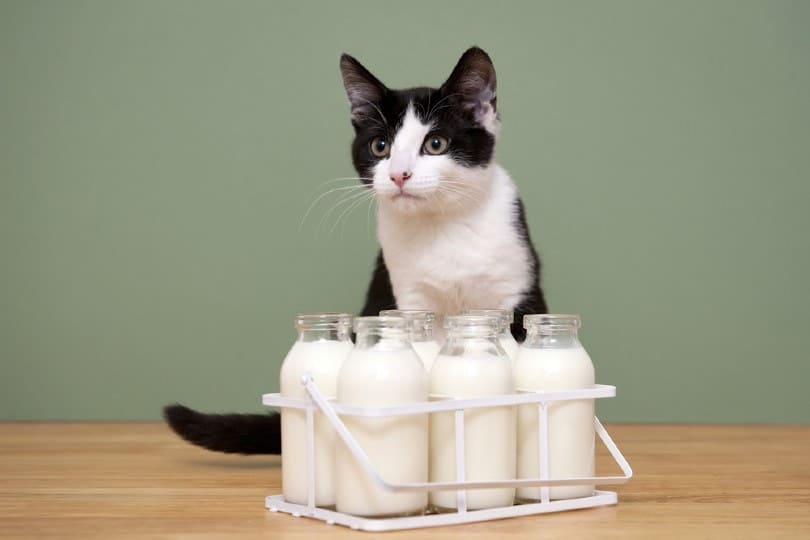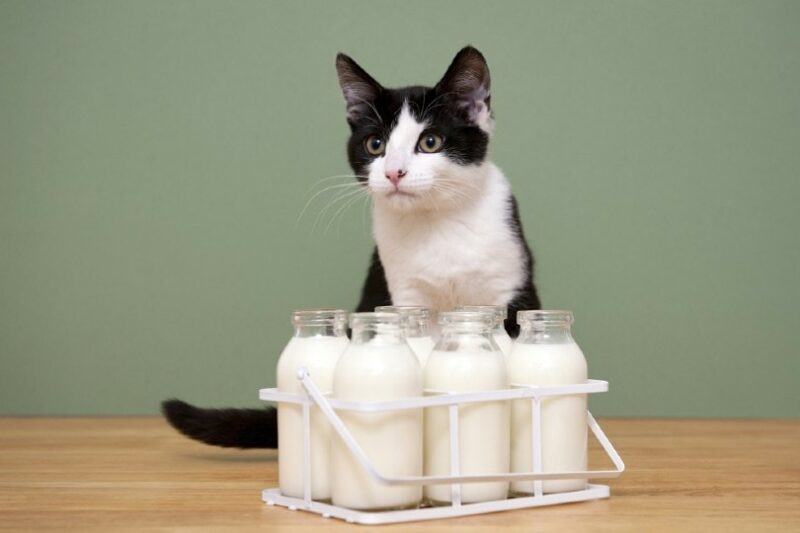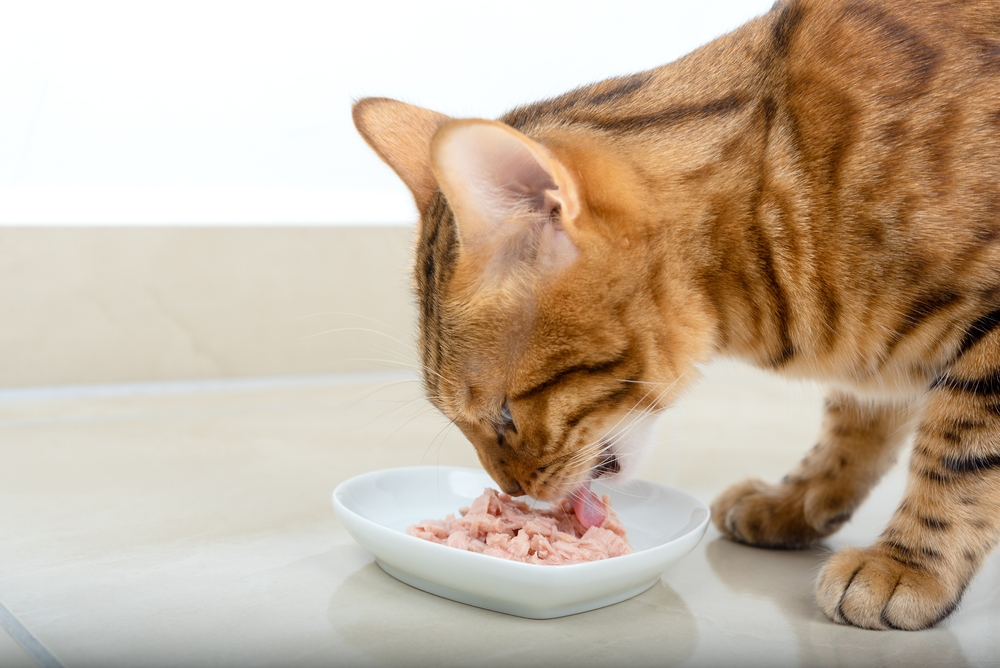Cats are infamous for their love for milk. However, it turns out that cats might be lactose intolerant. But how true is that claim?
Unfortunately, it is true: Most cats are lactose intolerant. Lactose intolerance is the inability to digest the primary sugar in milk and other dairy substances, such as cheese.
Lactose-intolerant cats suffer from stomach cramps, among a host of other digestive issues, when they ingest dairy products. The vast majority of cats are lactose intolerant.
Why Are Cats Lactose Intolerant?
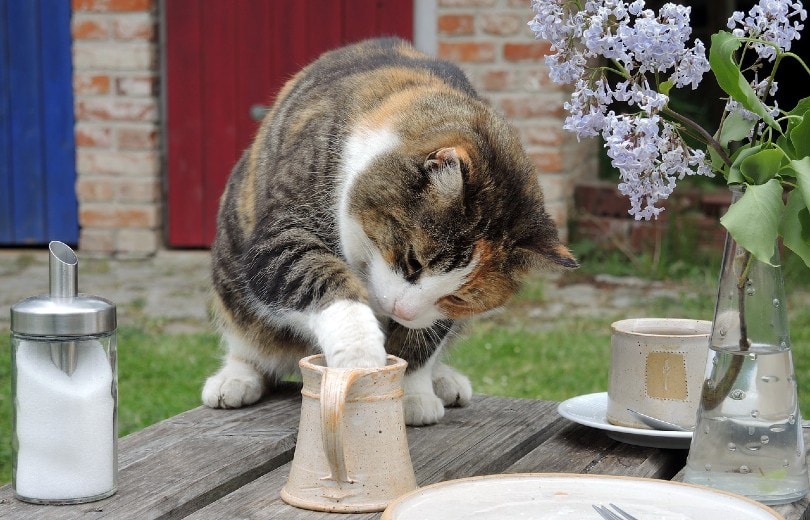
Lactose is the primary carbohydrate in milk. It is a disaccharide sugar consisting of glucose and galactose and is found in all types of milk in varying percentages.
Like all other baby mammals, kittens are born with the innate ability to process lactose, thanks to the enzyme lactase. This enzyme splits lactose into simple sugars, allowing kittens to digest milk without any trouble. It is crucial for kittens to have this ability since they are completely dependent on their mama’s milk for survival during the first few weeks of their lives.
As with all other mammals, cats lose the ability to break down lactose as they grow older because their bodies produce less and less of the lactase enzyme over time. By the time kittens are 6 months old, they usually have all but lost the ability to break down lactose. Once the body stops producing the enzyme lactase, it stops for good.
When a lactose-intolerant cat drinks milk, the unprocessed lactose draws lots of water into the digestive tract, and the cat’s gut bacteria begin to ferment the undigested sugars. That is what causes signs of an upset stomach, including bloating, cramping, gas, and diarrhea, within 8—12 hours of drinking milk.
Note that lactose intolerance is not a type of food allergy. With food allergies, the cat’s immune system views the substance as a foreign material, prompting an attack. That reaction becomes more severe with each repeated exposure to the allergen.
However, with lactose intolerance, the signs only last as long as lactose remains in the system, ceasing when the sugar is expelled from the cat’s body.
Can Kittens Ingest Dairy?
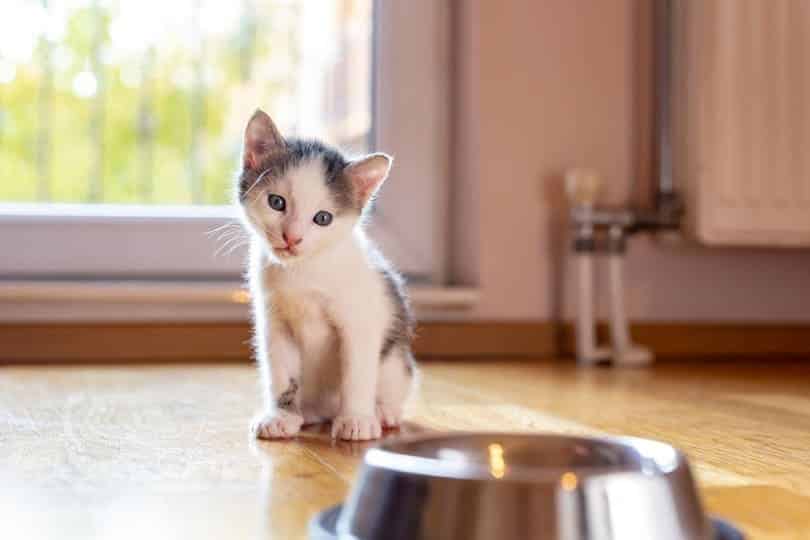
As mentioned, kittens produce the enzyme lactase to digest the lactose in their mother’s milk. Does it mean that it is okay for them to drink cow’s milk or ingest other types of dairy products?
The answer is no. Cow’s milk, as well as other dairy products, can still harm a kitten. Lactose appears in varying percentages in different types of milk. Also, the nutritional profile of each species’ milk is very different. A kitten’s digestive tract is designed to process cat milk, not any other milk. As such, avoid feeding cow’s milk and dairy products to your kitty.
Conclusion
Many cats love the taste of milk and dairy products for some reason and will consume them without a second thought. But these furballs are usually lactose intolerant, and their bodies will not tolerate milk. Therefore, keep it away from them.
Featured Image Credit: Ben Queenborough, Shutterstock

